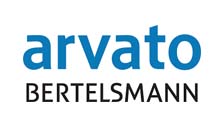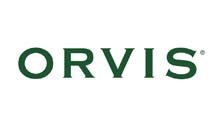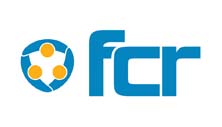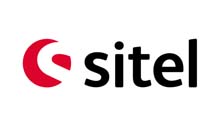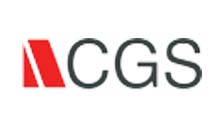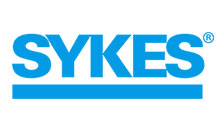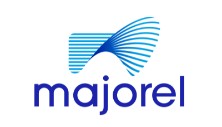Industry-Leading Customer Service Skills Tests
The Statistics Speak for Themselves
According to a survey conducted by Sage Software,

86% of clients are willing to pay more for great customer service.

40% of clients buy more when they receive great customer service.

Excellent customer service and support attract additional customers whose business is worth up to 10x the amount they initially spend.
Top Skills and Abilities to Look for in Customer Service Professionals
With our customer service skills assessments, you can easily evaluate candidates and hire the best for your client support team.
Excellent Verbal and Written Communication Skills
The ability to communicate effectively over the phone and via email and chat, good listening skills, and a positive attitude are just a few criteria you need to evaluate when hiring for customer service and support jobs.
Specialized Product or Technical Knowledge
A good understanding of the product or service you sell and the value it offers clients is important as well as the ability to answer technical questions. Depending on the nature of your business, you might consider evaluating candidates’ mechanical aptitude, ability to read blueprints or troubleshoot software technical issues.
Good Problem Solvers
A good customer service or support rep can turn problems into solutions and transform unhappy customers into loyal evangelists for your company. So, prompt issue resolution and good follow-up skills are essential.
Customer Service Tests You Should Use
Standard Job-Based Tests: Includes standard tests for jobs such as Call Center Manager, Call Center Operator, Customer Service Representative, Client Services Analyst, Help Desk Specialist, IT Systems Support Analyst, Desktop Support Specialist, and more.
Standard Subject-Based Tests: Microsoft Office ® Simulations such as MS Windows 10, Typing and Data Entry Skills, Inbound Call Center Simulation, Digital Literacy Simulation, Mechanical Aptitude, and Technical Skills.
Customize From Over 600 Modular Subjects: Generate a multi-subject customer service skills test in seconds by hand-picking your favorite topics and questions from subjects like Attention to Detail, Data Checking, Chat Simulation, E-mail Etiquette, and Multitasking Simulation.
Simulations: Determine if candidates can do a job by asking them to complete realistic simulations such as Multitasking, Chat, Word and Excel. We can also create custom simulations on request.
Situational Judgement Tests (SJT): Assess candidates’ Job Fit for a position and determine whether they will succeed in your corporate culture using Customer Service, Sales, Remote Leadership and Change Management SJTs.
Upload Your Own Content: Generate a multi-subject customer service skills test in seconds by hand-picking your favorite topics and questions from subjects like Attention to Detail, Data Checking, Chat Simulation, E-mail Etiquette, and Multitasking Simulation.
Why Choose eSkill Customer Service Assessments
- eSkill makes assessing candidates’ job skills, psychological fit, and interview presentation a seamless part of your hiring process.
- Amazon, 1-800 Contacts, Spotify, Sitel, Sutherland Orvis, and hundreds of other companies use eSkill’s customer service assessments. Learn why.
- Include Video Interview questions in your assessments for a seamless, complete candidate evaluation experience.
- Select from over 800 standard tests or easily customize assessments from thousands of topics relevant to your job or training requirements.
- eSkill will help you hire better-qualified customer service and support reps more quickly with defensible compliance.
Looking for More?
Learn about specific solutions designed for your needs, read client success stories and review integration options.
Why eSkill
eSkill provides the most relevant and valid pre-employment assessment tests for skilled jobs.
How it Works
Small business and enterprise solutions for evaluating candidates’ skills quickly, easily, and accurately.
Integrate Your System
Already have an ATS, LMS or HRIS system? Learn how to integrate eSkill with your existing systems.
Subscribe to Our Newsletter for Updates
Your Complete Guide to Customer Service Assessments
Many organizations underestimate the importance of customer service. If yours is one of them, you are making a big mistake because the quality of your service directly impacts your bottom line.
According to a study conducted by Microsoft, the customer service experience determines whether 90% of customers stay loyal to a brand. According to Zendesk, a leading software service provider, 61% of your customers will switch brands if they have a bad service experience.
A whopping 93% of customers say they go out of their way to do business with companies that offer excellent customer service, and 58% will pay more for superior service.
Since the quality of service is so important to customers, employers worldwide have implemented an industry-leading assessment solution like the eSkill Talent Assessment PlatformTM and use customer service assessments to identify top candidates for service-oriented job roles.
Why Customer Service is Important
Your customer service team is the face of your company and brand and your secret weapon for building a loyal customer following. When customers and prospects contact your business, the first person they interact with is most likely a customer service representative. For many people, it is the ONLY person they deal with.
Customer retention is a key component of your business’s health. Retaining existing customers costs about one-fifth as much as acquiring new ones. And increasing customer retention by just 5% could lead to as much as a 25% profit boost because you invest less revenue and expend fewer resources on customer acquisition.
Your business will flourish if you retain good customers, while high attrition will stifle growth and hurt your bottom line. You will always be playing catch up because your success rate when attempting to sell a product or service to an existing customer is around 60% to 70%. In contrast, there is only a 5%—20% chance that you will close a deal and convert a prospect into a new customer.
The Current State of Customer Service
Companies have increased their investment in customer service but are still not meeting customers’ expectations. A recent study shows that over 50% of consumers have not noticed any improvement in customer service, and 23% have said it has declined.
A large part of the problem is that recruiting good customer service representatives is difficult because they wear many hats. Representatives require excellent verbal and written communication skills, must be good multitaskers, have good time management abilities, and be able to learn about and understand the products and services their company sells. They must also be friendly and understanding and able to manage difficult (and sometimes rude) callers without getting flustered or irritated.
Another problem is that HR professionals can no longer use traditional applicant screening techniques such as resumes and interviews to identify top candidates. The information is often inaccurate because over 77% of applicants lie or exaggerate their qualifications and experience.
As a result, an applicant whose resume looks perfect and who sounds great during interviews could fail miserably because they lack the skills and aptitudes required to do the job well. Customer service assessments minimize the chance of this happening because they show which applicants are best qualified and enable HR teams to eliminate applicants who lack the required skills and experience.
What is a Pre-Employment Test for Customer Service?
Customer service assessments help organizations identify and hire top candidates by showing recruiters which applicants have the required skills for a job. They can screen hundreds and even thousands of candidates and instantly see which applicants are qualified for a job and which ones should be eliminated from consideration.
They also help employers avoid hiring mistakes, which are every company’s worst nightmare because they are expensive, kill productivity, and can harm staff morale. Studies show that can cost from $17,000 to $240,000 when you factor in recruiting expenses, incomplete projects, staff disruption, loss of customer goodwill, and the possibility of litigation.
Customer service assessments minimize the chance of hiring mistakes occurring because hiring teams make decisions based on hard data instead of relying on gut feel. They help organizations ensure compliance with fair hiring practices and standards by minimizing the unconscious bias that could influence hiring decisions.
Once applicants complete and submit tests, HR teams can sort them by score and review cumulative scores and section-specific data. Then they have the information they need to create a shortlist of candidates who can deliver the quality of service their customers deserve.
How Do You Test Customer Service Skills?
The best way to test customer skills is to use a customer service assessment that tests applicants’ ability to complete tasks they will perform on the job.
For example, if the primary focus of a job is inputting and processing orders, you need a detail-oriented person with accurate typing skills. So, your customer service skills test should include questions from the Form-Fill Data Entry Typing and the Attention to Detail assessments and relevant questions from the Customer Service skills test.
If the new hire will be responsible for handling customer inquiries and solving order and delivery problems, you need an excellent listener with good problem-solving skills who can work with difficult customers. In this case, you should select questions from the Customer Service Assessment that assesses listening, empathy, and problem-solving and include questions from the Emotional Intelligence skills test.
The types of questions you include are also important. Customer service assessments can include questions in various formats such as multiple-choice, simple select, select all that apply, and true/false. However, if the job requires a lot of phone contact with customers, you want applicants who are articulate and have good phone etiquette. The same is true if the job requires foreign language proficiency. In these cases, you should include video response questions where applicants record and upload their responses so you and your team can evaluate and rate their answers.
What is on a Skills Assessment Test?
HR leaders often ask us what is on a skills assessment test. There is no set answer because it depends on what the new hire will do and the company’s goals and objectives. However, we tell them it is important to select an assessment solution that allows them to customize customer service assessments.
The eSkill Talent Assessment PlatformTM lets you choose off-the-shelf customer service assessments and add or delete questions or create a customized test by selecting questions from multiple assessments. You can even add your own questions if needed. For example, if you need to hire a customer service representative with strong MS Word and Excel proficiency and good basic math skills, you can use questions from the customer service skills test and add questions from the MS Word®, MS Excel®, and Basic Math skills tests.
Many employers believe the best way to confirm that applicants can do a job is to ask them to complete tasks they will perform if hired. This is why your assessment solution should also allow you to include simulations in customer service assessments. The eSkill Talent Assessment PlatformTM includes a Chat simulation to ensure candidates can communicate with customers using popular Chat applications and a Multitasking simulation to demonstrate that they can manage and prioritize several tasks simultaneously.
Which Technical Skills for Customer Service Should You Test?
We are often asked which technical customer service skills are important to test. Many HR leaders want us to “boil it down” by asking questions like, “What are 5 qualities of good customer service?” and “What are the top 3 skills of customer service that every representative needs?” Here again, it depends on the nature of the job role and the organization’s goals and objectives. However, in general, every applicant should have these 10 customer service skills if they apply for a service-related job.
Empathy: Empathy is a valuable trait that allows someone to understand other people’s feelings and why they feel the way they do. If a customer has a problem, displaying empathy means taking time to understand why they are upset and expressing concern, showing that you and your employees care about their feelings.
Problem-Solving: Applicants with good problem-solving skills can resolve difficult issues and situations. They can identify and define a problem, understand its cause, find a solution, and take action to resolve the issue.
Communication skills: Candidates with good communication skills can convey messages effectively verbally and in writing. This is important in many different jobs, but it is particularly important in customer service because unclear communication can cause misunderstanding and confusion, which can lead to incorrect orders and could result in lost business.
Active Listening: Applicants with good active listening skills can fully concentrate and focus on what someone is saying. It is an important attribute for customer service representatives because the better an employee can listen to customers, the easier it is to help them.
Patience: Patient people can endure difficult circumstances without expressing frustration, anger, and other negative emotions. Patience is an essential quality for customer service representatives because they often deal with customers who are angry or upset. When faced with an angry customer, a patient person can remain calm and collected and show the customer they want to help.
Positive Attitude: Candidates with a positive attitude can look at a situation favorably or with optimism. This is important in customer service because it shows professionalism and increases customer satisfaction. When employees are positive, it makes customers feel good and puts them in the same state of mind. It also gives customers a good impression of your business, translating into better customer retention and more referrals.
Emotional Intelligence: A great customer support representative can relate to anyone, and they see other people’s point-of-view, even when the other person is frustrated.
Resourcefulness: A good customer service representative solves problems. A great one takes the initiative and goes the extra mile by infusing a typical customer service exchange with memorable warmth and personality, which makes customers tell their friends. It is not something you can teach; the applicant must have it naturally.
Technical Knowledge: Customer service representatives sometimes get messages from people who are considering purchasing their company’s products and services. So, they need to be knowledgeable enough about their company’s products and services to explain how prospects can benefit by purchasing them or why they are inappropriate for their needs.
Adaptability: Customer service representatives often get thrown curve balls. Customers make requests that aren’t covered in your corporate policy and weren’t covered in training. So, they need to be able to think on their feet.
Examples of Customer Service Assessment Tests
These are some examples of customer service assessment tests that you will find in the eSkill Assessment Library.
- Customer Service: Includes questions that evaluate candidates’ listening and empathy skills and teamwork and collaboration abilities.
- Problem-Solving: Evaluates applicants’ ability to pinpoint problems, define viable solutions, and work toward a resolution.
- Basic Computer Skills: If your customer service job role requires good computer skills, this assessment tests candidates’ knowledge of MS Office® applications such as Word, Excel, and PowerPoint.
- Emotional Intelligence: Evaluates applicants’ social intelligence and empathy and is useful to assess candidates for jobs that require a lot of customer interaction.
- Email Etiquette: Confirms applicants know how to format and write email messages using correct grammar and spelling and that they understand email etiquette.
Get Started with Customer Service Assessments
Building a strong customer service team leads to better customer retention and higher profitability. When you provide clients with an exceptional service experience, they are more likely to become repeat customers and loyal advocates for your brand, allowing you to maximize retention and reduce customer churn. This is important because acquiring new customers can cost six to seven times more than retaining existing ones.
Hiring better-qualified candidates is key to improving the customer service you provide.
Customer service assessments help you identify top applicants who are likely to succeed in your company’s customer service role.
Do you want to learn how customer service assessments can help you build a service dream team that keeps customers returning? Contact us to request a demo.
